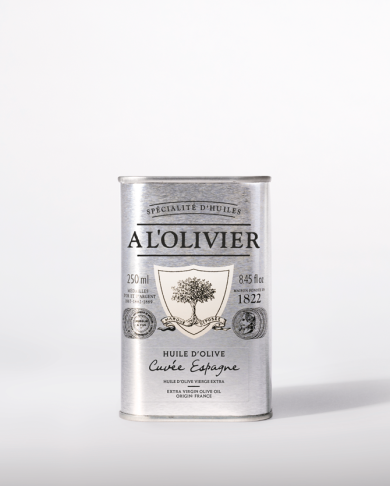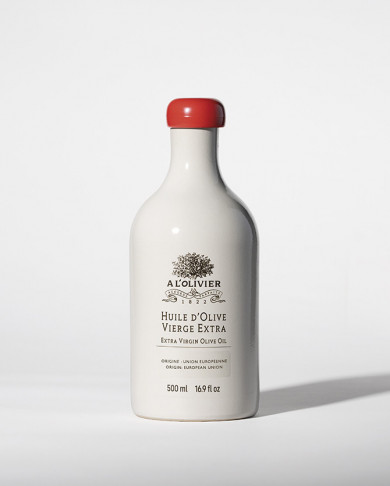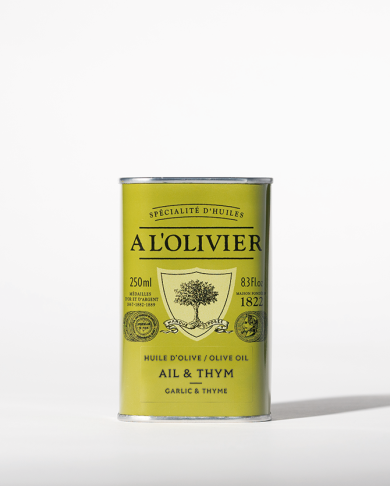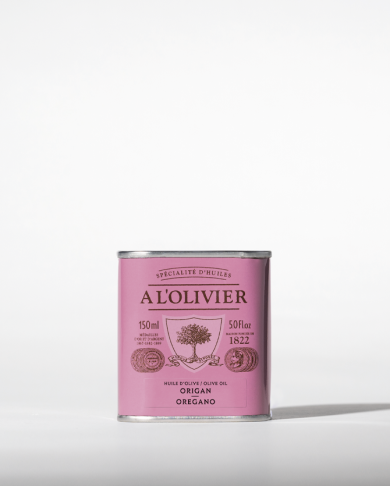INSPIRATIONS


Expert advice
| 23.12.2021
WHAT’S THE BEST WAY TO STORE YOUR OLIVE OIL?

Olive oil doesn’t mature like cheese, and it doesn’t improve over time like a good wine! Our tips for storing olive oil for the best shelf life.
When does olive oil start to turn bad?
Just like any product, olive oil starts to change as soon as it leaves the mill. Over time, it loses some of its organoleptic and nutritional qualities, without becoming unfit for consumption or presenting a risk of food poisoning. All oils naturally tend to become stale with time, and the benefits of extra virgin olive oil will gradually diminish. For this reason, olive oil doesn’t have a shelf life and is instead subject to a “date of minimum durability”. Once opened, it should ideally be consumed within 3 months, and the container should be sealed carefully after each use: contact with the air, often or over a long period of time, results in oxidation that makes the oil stale quicker. In short, olive oil doesn’t “go off” as such, but it must be stored properly.
What’s the best container to store olive oil in?
The choice of container depends on both the oil’s characteristics and your consumption habits. People who only use oil now and then might prefer smaller containers so that they can change the olive oil more regularly. When it comes to extra virgin olive oil, opt for a container that offers good protection from light to avoid oxidation (metal, opaque glass).
Plastic bottles
Thick, dark plastic bottles can be used for storage, you’ll see these often in supermarkets. However, the only advantage to this packaging is its price. It doesn’t prevent oxidation and does little to protect the qualities of the oil. Better to avoid these if you can.
Glass container
Glass bottles are a great way to store your oils, plus they’re good for your health and the environment. Dark or opaque glass is better than transparent because, even though it hides the beautiful golden colour, it protects the oil from light. The only disadvantage to glass bottles is that they’re more fragile and weighty than the alternatives. Anyone who’s broken a bottle of oil knows how tedious cleaning up the shards of glass can be!
Plastic can
Plastic cans are inexpensive and great for transporting and storing large quantities of olive oil. However, once opened, the olive oil oxidises rapidly, due to the large surface area in contact with the air. These are the container of choice for those who bring their own olives to the mill. For larger amounts of olive oil, metal tins are more suitable.
Stainless steel tin
In addition to its elegant design, metal tin blocks out light like opaque glass bottles do, making it a great way to store olive oil. Moreover, metal is unbreakable, and much lighter than glass. Its stunning aesthetic is another reason to love it.
Where you store your oil matters!
No matter the expiry date, you still need to store your glass, stoneware or metal container in a suitable location. Like many foods, olive oil is best stored in a dark place: a cupboard or cellar is preferable to a sunny room. However, heat is the true enemy of olive oil. Unlike lower temperatures, it degrades the oil’s flavours. Again, a dark cellar which stays cool all year round is perfect. If the oil has crystallised, which happens below about 13°C, simply return it to room temperature (not next to a heat source!) to restore its fluidity. Finally, beware of rooms where pungent foods or other strong-smelling items are stored, as olive oil tends to absorb smells.

 Menu
Menu
 Mon compte
Mon compte  Wishlist
Wishlist  Panier
Panier 



